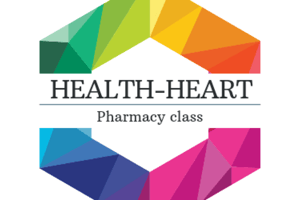Podcast
Questions and Answers
What does the term 'Pharmacology' originate from?
What does the term 'Pharmacology' originate from?
- Latin for medication and treatment
- Greek for drug and study (correct)
- Arabic for healing and practices
- French for pharmacy and science
Which of the following best describes the primary focus of Pharmacology?
Which of the following best describes the primary focus of Pharmacology?
- The study of medication administration techniques
- The economic impact of drug development
- The interaction of drugs with living systems (correct)
- The history of pharmaceutical sciences
What key aspect of drug development should students be able to compare by the end of the lecture?
What key aspect of drug development should students be able to compare by the end of the lecture?
- Various drug classes
- Types of pharmacy practice
- Different drug formulations
- Phases in Drug Development (correct)
What is NOT a focus of Pharmacodynamics?
What is NOT a focus of Pharmacodynamics?
Which of the following best describes pharmacokinetics?
Which of the following best describes pharmacokinetics?
Identifying and interpreting which aspects should be mastered according to the lecture objectives?
Identifying and interpreting which aspects should be mastered according to the lecture objectives?
What role do nuclear hormone receptor cofactors play in research according to the content provided?
What role do nuclear hormone receptor cofactors play in research according to the content provided?
What should a nurse understand regarding medications they administer?
What should a nurse understand regarding medications they administer?
What is the primary focus of Phase 2 clinical trials?
What is the primary focus of Phase 2 clinical trials?
Which of the following best describes pharmacokinetics?
Which of the following best describes pharmacokinetics?
Which mechanism allows drugs to cross lipid membranes from low concentration to high concentration?
Which mechanism allows drugs to cross lipid membranes from low concentration to high concentration?
What does bioavailability refer to in pharmacology?
What does bioavailability refer to in pharmacology?
Which phase of clinical trials involves the largest number of participants?
Which phase of clinical trials involves the largest number of participants?
What is a primary responsibility of a nurse regarding prescribed medications?
What is a primary responsibility of a nurse regarding prescribed medications?
Which characteristic is NOT typical of an ideal drug?
Which characteristic is NOT typical of an ideal drug?
What should a nurse consider about a medication's administration?
What should a nurse consider about a medication's administration?
In drug development, what is crucial before a drug reaches patients?
In drug development, what is crucial before a drug reaches patients?
How do special considerations affect pharmacotherapeutic response?
How do special considerations affect pharmacotherapeutic response?
Which statement about drug characteristics is correct?
Which statement about drug characteristics is correct?
What minimizes adverse effects of an ideal drug?
What minimizes adverse effects of an ideal drug?
What is the role of the nurse in understanding medication contraindications?
What is the role of the nurse in understanding medication contraindications?
What describes the process of chronic blocking of receptors?
What describes the process of chronic blocking of receptors?
Which term refers to the strength of a drug at a specified concentration?
Which term refers to the strength of a drug at a specified concentration?
Which statement about agonists is true?
Which statement about agonists is true?
A high therapeutic index indicates that a drug is considered what?
A high therapeutic index indicates that a drug is considered what?
If a drug (a) is selective to receptor (A), which statement is false?
If a drug (a) is selective to receptor (A), which statement is false?
What occurs when the number of receptors decreases in response to repeated stimulation?
What occurs when the number of receptors decreases in response to repeated stimulation?
Which of the following choices describes efficacy?
Which of the following choices describes efficacy?
If oxytocin produces a greater response at lower doses than vasopressin, which statement is correct?
If oxytocin produces a greater response at lower doses than vasopressin, which statement is correct?
What is the purpose of a loading dose?
What is the purpose of a loading dose?
What does a higher volume of distribution indicate about a drug?
What does a higher volume of distribution indicate about a drug?
Which statement is false regarding drug-protein binding?
Which statement is false regarding drug-protein binding?
What does therapeutic drug monitoring aim to do?
What does therapeutic drug monitoring aim to do?
If 300 mg of a 400 mg dose of amoxicillin is bioavailable, what is its bioavailability percentage?
If 300 mg of a 400 mg dose of amoxicillin is bioavailable, what is its bioavailability percentage?
What aspect is not typically involved in pharmacokinetics?
What aspect is not typically involved in pharmacokinetics?
When discussing drug elimination, which statement is accurate?
When discussing drug elimination, which statement is accurate?
In therapeutic monitoring, what is the goal regarding plasma drug concentrations?
In therapeutic monitoring, what is the goal regarding plasma drug concentrations?
Flashcards are hidden until you start studying
Study Notes
Overview of Pharmacology
- Pharmacology stems from Greek words: "pharmakos" (drug) and "logos" (study).
- Defined as the study of substances interacting with living systems through chemical processes, regulating body functions.
Educational Background
- PhD in Pharmacology from The University of Manchester (Apr 2023).
- MSc in Drug Discovery and Pharmaceutical Sciences from University of Nottingham (Dec 2016).
- BSc in Pharmacy from Umm Al-Qura University, KSA (Jun 2013).
Research Interests
- Focus on nuclear hormone receptors in breast cancer progression.
- Interested in cancer metabolism, epithelial-mesenchymal transition (EMT), and metastasis.
Lecture Objectives
- Identify general principles of pharmacology, including history and drug nature.
- Compare various phases of drug development.
- Define and interpret pharmacokinetics parameters.
- Understand principles of pharmacodynamics.
- Recognize drug-drug interactions and adverse effects.
Nature of Drugs
- Drugs are substances for preventing, curing, or alleviating medical conditions.
- Types of drugs include inorganic ions, organic molecules, peptides, proteins, nucleic acids, lipids, and carbohydrates.
- Unique molecular characteristics are required for selective receptor binding.
Ideal Drug Characteristics
- Effectively treats or prevents conditions.
- Produces rapid results at low doses with minimal side effects.
- Convenient administration, often orally and infrequent dosing.
- Affordable and accessible with quick elimination from the body.
- Should not interact negatively with other medications or food.
Drug Development Process
- Safety and efficacy assessments critical before patient use.
- Preclinical phase includes laboratory work lasting 3-5 years.
- Clinical phases:
- Phase 1: 20-100 healthy participants assess dosage and pharmacokinetics.
- Phase 2: 100-300 patients with diseases evaluate efficacy and safety.
- Phase 3: 1000-3000 patients compare efficacy against controls or placebos.
- Phase 4: Post-marketing surveillance.
- Certain drugs may bypass extensive clinical evidence due to urgent treatment needs (e.g., anticancer drugs).
Pharmacokinetics vs. Pharmacodynamics
- Pharmacokinetics:
- Concerns what the body does to the drug (ADME: Absorption, Distribution, Metabolism, Excretion).
- Pharmacodynamics:
- Focuses on what the drug does to the body, including physiological and biochemical effects.
Pharmacokinetics: Absorption
- Effective drugs must reach target cells in adequate amounts.
- Factors affecting passage through membranes include size, ionization, and solubility.
- Bioavailability measures the proportion of drug reaching circulation after absorption.
Mechanisms of Drug Transport
- Diffusion (passive transport): Movement from high to low concentration.
- Active transport: Requires carriers for crossing membranes.
Time-Response Relationship
- Regular medication administration aims to maintain plasma drug levels within therapeutic range.
- Loading dose: High initial dose for quick therapeutic range attainment.
- Maintenance dose: Regular doses to sustain therapeutic concentration.
Recap of Key Pharmacokinetic Terms
- Volume of distribution indicates drug distribution throughout the body.
- Drug-protein binding involves competition for plasma proteins (e.g., albumin).
- Therapeutic drug monitoring ensures drug concentrations remain effective, avoiding toxicity.
Pharmacodynamics: Receptors and Responses
- Agonists activate receptors like endogenous substances; partial agonists provide weaker responses.
- Antagonists block receptors to prevent chemical binding.
- Receptor regulation includes downregulation (diminished response) and upregulation (chronic blocking).
Potency and Efficacy
- Potency refers to the strength of a drug at specific doses; more potent drugs produce effects at lower doses.
- Efficacy is the maximum response achievable from a drug.
Key Recap Questions
- High therapeutic index indicates drug safety.
- Pharmacodynamics describes effects on the body.
- Selective drugs may bind differently to receptors.
Practical Cases
- Comparative analysis of drug effectiveness and responses (e.g., lorazepam vs. diazepam, oxycodone vs. aspirin).
Studying That Suits You
Use AI to generate personalized quizzes and flashcards to suit your learning preferences.





